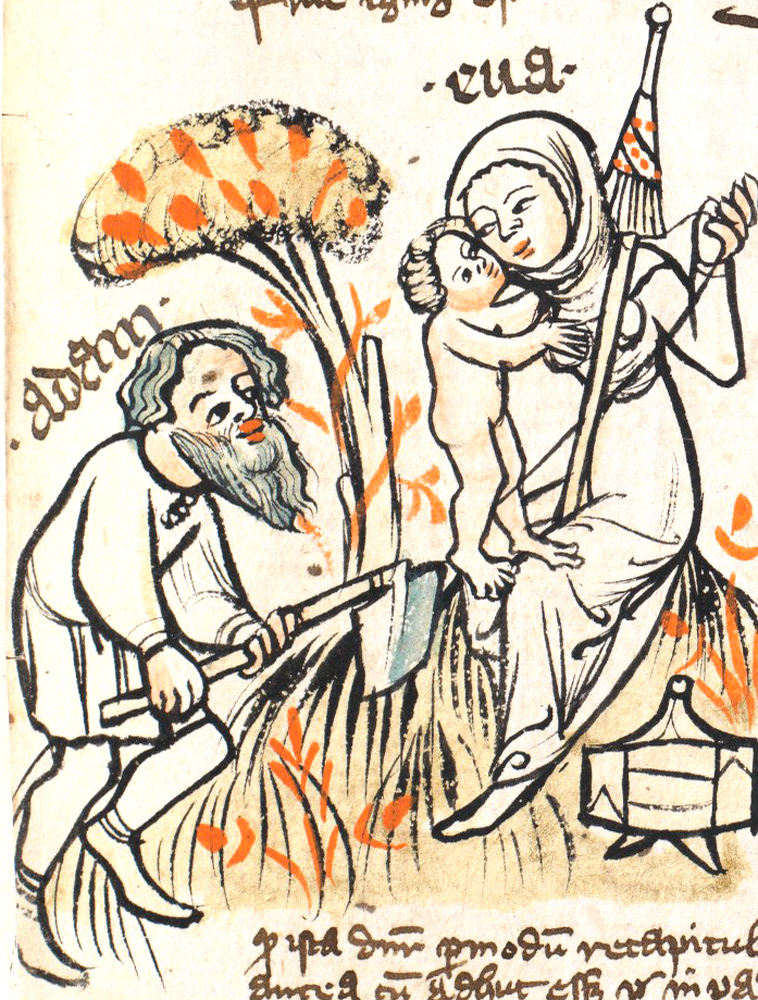
Rüdiger Schopf
Adam and Eve with Abel
1396
Manuscript Illustration
Basel, Universitätsbibliothek, A II 1, fol. 19r
(Nicholas de Lyra, Postil to Genesis and Exodus)
There are many medieval and paleo-Christian images of the post-lapsarian Adam and Eve working at the chores God assigned them in Genesis 3:16-19,* but few are as positive and sentimental as this illustration from a text of Nicholas of Lyra's
postil
a marginal note, especially on a biblical text, or a book of such notes
on Genesis. Adam digs with a hoe and smiles at Eve, who holds her baby on her lap while she works a distaff, a common symbol of womanly duty. Nicholas interprets God's punishments as the basis for the "domestic life" that the two are to pursue. Eve will be bound to her husband propter domesticam vitam, "for a domestic life," and as for Adam, "just as the woman is subjected to the man in a domestic life, in the same way it is the role of the man to procure the necessities of life for himself, his family, and his wife."1
That the illustrator may have seen Nicholas's comment as applicable to contemporary men and women may be suggested by the fact that this couple is dressed like contemporary peasants, not in the garments of skins that God made them (Genesis 3:21).
The intimacy between Eve and the naked baby is strongly reminiscent of Madonna and Child images of the time. The Virgin Mary is traditionally considered the second Eve, and Eve's son Abel is considered a type of Christ.
The top of a distaff holds the unspun flax or wool. One pulls out a thread from the distaff with one hand and wraps it around a spindle with the other. Here the artist has neglected to represent Eve's other hand at all. The object sitting to her left on the floor is too big to be a spindle; many medieval and later illustrations put a basket for the finished thread on the floor beside the woman.
Read more about images of Adam and Eve and of Abel.
Source: E-codices: Virtual Manuscript Library of Switzerland